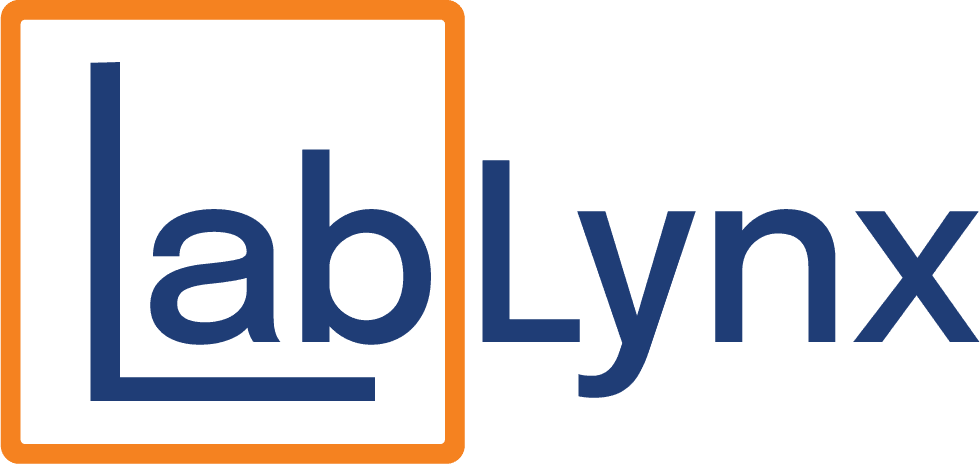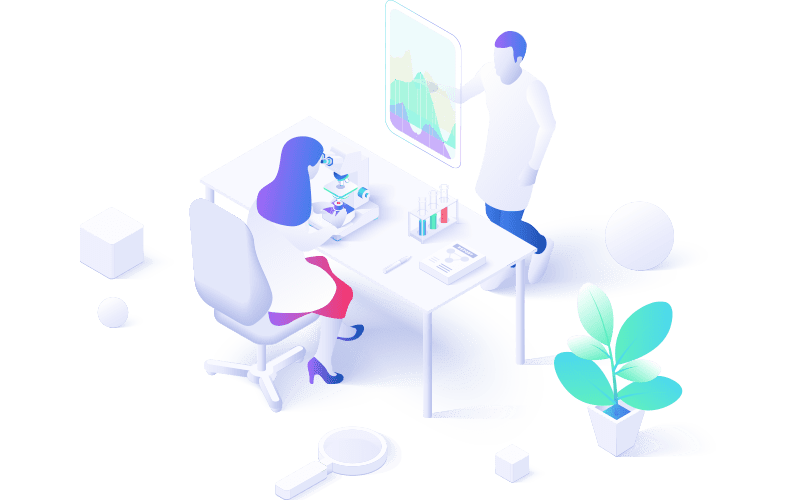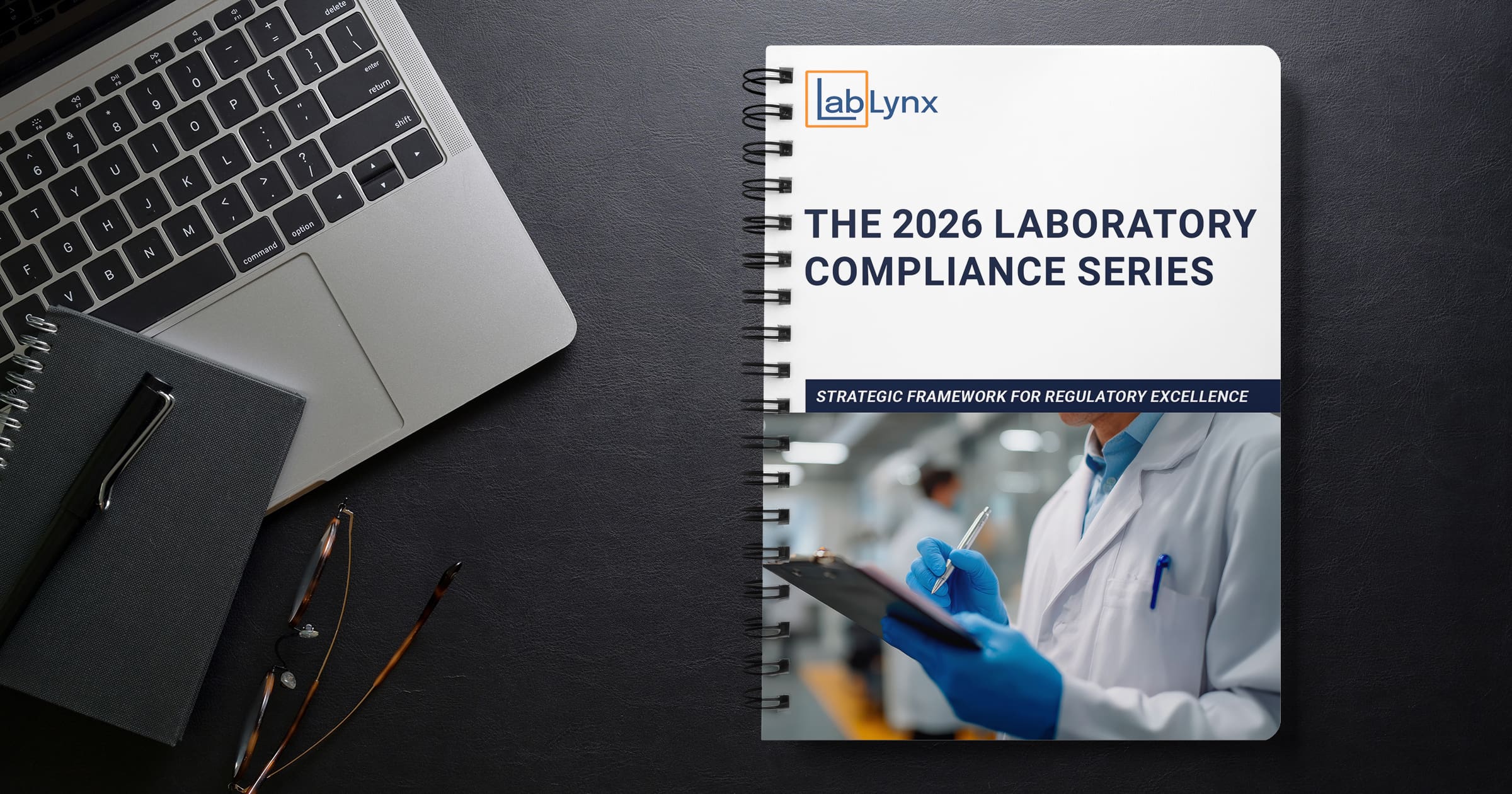
Executive Summary: Compliance as Strategic Business Investment
Laboratory compliance in 2026 is no longer just a regulatory checkbox—it's a strategic business imperative that directly impacts your bottom line. With FDA civil penalties ranging from $10,000 to $20,000 per violation, ransomware attacks costing laboratories an average of $1.85 million per incident, and new regulatory deadlines approaching in February 2026, the cost of non-compliance has never been higher.
Yet laboratories that approach compliance strategically—as a revenue-generating, risk-mitigating investment rather than an IT expense—are discovering significant competitive advantages. ISO/IEC 17025 accreditation unlocks federal contracts worth millions. Robust data integrity systems reduce audit findings by 60-85%. Automated compliance workflows save 12-20 staff hours per week while enabling laboratories to handle 30-40% more test volume without proportional staffing increases.
This comprehensive guide provides laboratory decision-makers—from CFOs evaluating ROI to quality managers implementing systems—with the strategic framework needed to navigate 2026's complex compliance landscape. You'll discover:
- Critical regulatory changes with imminent deadlines (FDA QMSR: February 2, 2026)
- Financial impact analysis quantifying both non-compliance risks and compliance ROI
- Core compliance frameworks including 21 CFR Part 11, ISO 17025, CLIA/CAP, and cybersecurity requirements
- Technology solutions that transform compliance from burden to competitive advantage
- Implementation roadmaps for laboratories of all sizes and types
Whether you operate a clinical diagnostic laboratory, pharmaceutical R&D facility, environmental testing lab, or contract research organization, this guide delivers the actionable intelligence you need to make informed compliance investments that protect revenue, mitigate risk, and create measurable business value.
2026 Compliance Landscape: Major Regulatory Shifts Demand Immediate Action
The regulatory environment facing laboratories in 2026 represents the most significant compliance evolution in a decade. Three major regulatory changes with firm deadlines are reshaping laboratory operations:
FDA Quality Management System Regulation (QMSR) – Effective February 2, 2026
The FDA's modernization of medical device quality systems becomes mandatory on February 2, 2026, replacing the decades-old Quality System Regulation (21 CFR Part 820) with a new framework that incorporates ISO 13485:2016 by reference. This represents a fundamental restructuring—reducing 15 regulatory subparts to just 2—while introducing risk-based thinking as a core compliance principle.
Impact: Medical device laboratories and manufacturers have less than one month remaining to complete gap analyses, update quality management systems, and achieve full compliance. The QMSR affects not just finished device manufacturers but also component suppliers and testing laboratories in the medical device supply chain.
Business Imperative: Laboratories that fail to comply by February 2, 2026, face immediate enforcement risk including warning letters, consent decrees, and potential facility shutdowns. The streamlined regulation offers efficiency benefits for compliant organizations—simplified documentation requirements and alignment with international standards—but the transition window is closing rapidly.
Laboratory Developed Tests (LDT) Phaseout – Multi-Year Timeline Through 2028
The FDA's phased enforcement of in vitro diagnostic (IVD) regulations for laboratory developed tests fundamentally changes the landscape for clinical laboratories offering proprietary testing services. The phaseout timeline includes:
- May 6, 2026: Registration, listing, and labeling requirements begin
- May 6, 2027: Quality system requirements (design controls, purchasing, CAPA)
- November 6, 2027: Premarket review for high-risk devices
- May 6, 2028: Premarket review for moderate and low-risk devices
Impact: Laboratories offering LDTs face strategic decisions: invest in compliance infrastructure, partner with approved IVD manufacturers, or exit certain testing markets. The compliance burden varies significantly based on test complexity and risk classification.
Business Imperative: Clinical laboratories must evaluate their LDT portfolios now to determine which tests justify compliance investment versus which should be transitioned to FDA-cleared alternatives. The grandfathering provisions for currently marketed LDTs offer some relief, but any modification triggers full compliance requirements.
BIOSECURE Act – Federal Procurement Restrictions
Signed into law on December 18, 2025, the BIOSECURE Act establishes new restrictions on biotechnology equipment and services for organizations with federal funding. The Office of Management and Budget (OMB) will publish an initial list of "biotechnology companies of concern" by December 18, 2026, followed by implementation guidance within 180 days.
Impact: Laboratories with federal contracts, grants, or research funding must assess their equipment suppliers, service providers, and data handling partners for compliance with forthcoming restrictions. The broadly defined scope covers not just laboratory instruments but also associated software, data storage, and bioinformatics services.
Business Imperative: Proactive vendor risk assessment and contingency planning are essential. Laboratories should inventory their biotechnology equipment supply chains now and identify potential alternative suppliers before the OMB list publication forces reactive changes.
The Convergence Challenge: Multiple Simultaneous Compliance Requirements
The strategic challenge for laboratory leadership extends beyond individual regulations to managing convergent compliance demands. A clinical laboratory performing molecular diagnostics on medical device platforms while holding federal research grants must simultaneously navigate:
- CLIA and CAP quality requirements
- HIPAA privacy and security rules
- 21 CFR Part 11 data integrity standards
- FDA QMSR (if using medical devices)
- LDT regulations (for proprietary tests)
- BIOSECURE Act equipment restrictions
- ISO/IEC 17025 (if seeking accreditation)
- Cybersecurity frameworks
This complexity amplifies the business case for integrated technology solutions—particularly modern Laboratory Information Management Systems (LIMS) and Electronic Lab Notebooks (ELN)—that address multiple compliance frameworks through unified data integrity, audit trail, and access control capabilities.
Core Compliance Frameworks: Understanding the Regulatory Foundation
21 CFR Part 11 & Data Integrity: The ALCOA+ Foundation
Regulatory Authority: FDA
Applicability: All laboratories creating electronic records or using electronic signatures
Core Principle: Electronic records must be trustworthy, reliable, and equivalent to paper records
The FDA's 21 CFR Part 11 regulation, established in 1997 and refined through subsequent guidance documents, governs electronic records and electronic signatures for FDA-regulated industries. While originally focused on pharmaceutical manufacturing, the principles apply universally to any laboratory creating electronic records subject to FDA oversight—including clinical diagnostic labs, research facilities, and testing laboratories.
ISO/IEC 17025:2017: The Global Standard for Laboratory Competence
Regulatory Authority: International Organization for Standardization (ISO)
Applicability: Testing and calibration laboratories seeking formal accreditation
Core Principle: Laboratories must demonstrate technical competence and reliable operations
ISO/IEC 17025:2017 represents the international gold standard for laboratory quality and competence. While not a government regulation, this voluntary standard provides laboratories with formal recognition of their technical capabilities through accreditation bodies like A2LA, ANAB, and NVLAP in the United States, all signatories to the International Laboratory Accreditation Cooperation (ILAC) Mutual Recognition Arrangement.
CLIA and CAP: Clinical Laboratory Excellence Standards
Regulatory Authorities: Centers for Medicare & Medicaid Services (CMS), College of American Pathologists (CAP)
Applicability: Clinical laboratories performing testing on human specimens
Core Principle: Ensure accuracy, reliability, and timeliness of patient test results
The Clinical Laboratory Improvement Amendments (CLIA) of 1988 established federal standards for all clinical laboratories performing testing on human specimens for health assessment or diagnosis. Administered by CMS in conjunction with the FDA and CDC, CLIA applies to approximately 260,000 laboratory facilities in the United States.
Laboratory Cybersecurity: Protecting Your Most Valuable Asset
Regulatory Authorities: HHS Office for Civil Rights (HIPAA), FDA, CISA
Applicability: All laboratories handling sensitive data, particularly clinical labs with PHI
Core Principle: Protect data confidentiality, integrity, and availability
The cybersecurity threat landscape facing laboratories in 2026 is unprecedented. Healthcare organizations—including clinical laboratories—rank as the third most-attacked sector globally, with 44% of all data breaches involving ransomware. The average ransomware incident costs laboratories $1.85 million, including ransom payments, recovery costs, regulatory penalties, and business interruption.
The Financial Impact: Quantifying Compliance ROI
The True Cost of Non-Compliance
Laboratory executives evaluating compliance investments must understand the complete financial picture—both the quantifiable risks of non-compliance and the measurable returns from strategic compliance programs.
Direct Regulatory Penalties:
FDA enforcement actions carry substantial financial consequences:
- Civil Monetary Penalties: $10,000-$20,000 per violation (typical range), with the FDA routinely pursuing multiple simultaneous violations
- Warning Letters: While not carrying immediate fines, warning letters trigger follow-up inspections, legal fees ($50K-$200K), and remediation costs ($100K-$500K)
- Consent Decrees: Severe violations result in court-ordered oversight requiring independent monitors, comprehensive facility remediation, and ongoing FDA oversight—total costs typically exceed $2M-$10M
- Criminal Prosecution: In cases of willful misconduct, individuals face fines up to $1M and up to 20 years imprisonment; corporations face higher fines and debarment from federal programs
Operational Impact:
Beyond direct penalties, non-compliance creates cascading business consequences:
- Facility Closure: Laboratories shut down for compliance violations lose 100% of revenue during closure (average duration: 45-180 days)
- Client Contract Loss: Quality issues and warning letters trigger contract termination clauses, with clients typically requiring 3-6 months of clean compliance history before reinstatement
- Insurance Impacts: Compliance violations increase professional liability premiums by 40-80% and may void coverage for related claims
- Reputational Damage: Industry awareness of compliance problems affects business development for 2-5 years post-incident
Real-World Impact Analysis:
Consider a mid-sized clinical laboratory ($15M annual revenue):
Non-Compliance Scenario:
- FDA inspection identifies data integrity violations across 25 test methods
- Warning letter issued with 15 discrete violations
- Civil monetary penalties: $250,000 (15 violations × $16,667 average)
- Legal representation and response: $150,000
- Remediation (LIMS implementation, revalidation, documentation): $400,000
- Lost revenue during 90-day partial shutdown: $3.75M
- Client contract losses (permanent): $2M annually
- Total First-Year Impact: $4.55M
- Ongoing Annual Impact: $2M+ in lost contracts
Compliance Investment Scenario:
- Proactive LIMS implementation: $200,000
- System validation and staff training: $75,000
- Annual maintenance and support: $40,000
- Total First-Year Investment: $315,000
- Annual Ongoing Cost: $40,000
Net Benefit of Proactive Compliance: $4.235M in Year 1, avoiding $2M+ annual contract losses
This 13:1 return on investment demonstrates why compliance should be framed as revenue protection and risk mitigation, not as discretionary IT spending.
The Positive ROI of Strategic Compliance
Beyond avoiding penalties, strategic compliance investments generate measurable positive returns:
Revenue Generation:
-
Market Access:
- ISO/IEC 17025 accreditation enables federal contract bidding (average contract value: $500K-$5M)
- CLIA Certificate of Accreditation allows Medicare/Medicaid billing
- State-specific certifications open regional environmental testing markets
-
Premium Pricing:
- Accredited laboratories command 15-30% premium pricing for equivalent services
- Quality certifications justify higher rates in competitive bids
- Example: Environmental lab with ISO 17025 charges $150 vs. $115 for competitor's non-accredited testing
-
Increased Capacity:
- Automated data capture and result reporting enables 30-40% higher test volume with existing staff
- Reduced manual transcription and data entry frees 10-15 hours per technician per week
- Example: 5-person testing team gains 50-75 hours/week capacity = 1.25-1.875 additional FTE equivalent
Operational Efficiency:
-
Error Reduction:
- Automated LIMS data capture eliminates 95%+ of transcription errors
- Each prevented error avoids $500-$5,000 in investigation, corrective action, and potential retesting costs
- Example: Lab processing 50,000 tests annually with 2% manual error rate = 1,000 errors/year × $1,500 average cost = $1.5M in error-related costs eliminated
-
Audit Preparation:
- LIMS-based compliance documentation reduces audit preparation from 4-6 weeks to 1-2 weeks
- Personnel time savings: 200-400 hours = $10,000-$20,000 in direct labor costs per audit
- Reduced inspection findings: 60-80% reduction in deficiencies requiring corrective action
-
Process Automation:
- Electronic quality control monitoring eliminates manual charting and review
- Automated equipment calibration reminders prevent expiration-related downtime
- Integrated proficiency testing tracking eliminates deadline misses (typical CLIA penalty: $1,000-$5,000 per missed PT)
Competitive Advantages:
-
Client Confidence:
- Certifications reduce client audit frequency from annual to biennial or triennial
- Clean compliance history supports client contract renewals and expansions
- Quality reputation enables relationship-based selling vs. price competition
-
Business Development:
- Certifications provide RFP differentiators in competitive bids
- ISO 17025 and CAP logos in marketing materials signal quality
- Case studies demonstrating compliance track record close enterprise deals
-
M&A Valuation:
- Clean compliance history reduces due diligence risk
- Active accreditations increase acquirer confidence
- Quality systems reduce integration costs and timeline
- Premium: Accredited laboratories command 1.2-1.5x EBITDA multiples vs. non-accredited competitors
ROI Example: Mid-Sized Clinical Laboratory
$8M annual revenue, 25 employees, considering $250K LIMS implementation:
Year 1 Benefits:
- Error reduction savings: $400K (from 800 manual errors to 50)
- Increased capacity (no new hires needed for 25% growth): $500K
- Premium pricing (10% average increase): $800K
- Audit efficiency: $15K
- Total Year 1 Benefit: $1.715M
Year 1 Costs:
- LIMS implementation: $250K
- Training and validation: $50K
- Total Year 1 Investment: $300K
Net Year 1 ROI: $1.415M (472% return)
Years 2-5 Ongoing:
- Annual benefits: $1.7M
- Annual costs: $50K (maintenance and support)
- Annual net benefit: $1.65M
5-Year Cumulative ROI: $7.715M on $500K total investment (1,543% return)
Technology as Competitive Advantage: How Modern LIMS Transform Compliance
The laboratories gaining competitive advantage from compliance share a common strategy: they deploy modern technology platforms that make compliance inherent to operations rather than bolted-on processes requiring constant manual oversight.
The LIMS as Compliance Infrastructure
Laboratory Information Management Systems (LIMS) designed for regulatory compliance serve as the operational foundation that simultaneously enforces regulatory requirements while improving laboratory efficiency and capacity.
Core Compliance Capabilities:
-
Comprehensive Audit Trails
- Every data entry, modification, deletion, or access automatically logged
- User identification, timestamp, data field, old value, new value, and reason captured
- Audit logs cryptographically sealed to prevent tampering
- Supports ALCOA+ attributability and traceability requirements
-
Electronic Signatures (21 CFR Part 11)
- Multi-factor authentication ensuring positive user identification
- Secure signature events for critical data review and approval steps
- Manifestation of electronic signatures meeting FDA format requirements
- Signature binding to data preventing repudiation
-
Role-Based Access Control
- Granular permissions ensuring least-privilege principle
- Separation of duties for critical operations (e.g., data entry vs. data approval)
- Automatic session timeouts and account lockouts after failed attempts
- Integration with enterprise identity management systems
-
Automated Instrument Data Capture
- Direct instrument-to-LIMS integration eliminating manual transcription
- Real-time data transfer ensuring contemporaneousness
- Preservation of raw instrument data files
- Automated calculation verification and range checking
-
Chain of Custody Tracking
- Complete sample lifecycle documentation from collection through disposal
- Barcode/RFID integration for positive sample identification
- Custody transfer documentation with electronic signatures
- Automated storage location tracking and retrieval
-
Quality Control Automation
- Statistical quality control with Westgard rules and automatic violation detection
- Real-time QC charting and trend analysis
- Automated corrective action workflows triggered by QC failures
- QC expiration monitoring and automatic lot change enforcement
-
Document and Version Control
- Central repository for all SOPs, work instructions, and specifications
- Automated version control with approval workflows
- Training linkage ensuring staff work to current procedures
- Obsolete document archival with continued accessibility for historical investigations
-
Compliance Reporting
- Pre-built reports for regulatory submissions and audit responses
- CLIA proficiency testing result tracking and submission
- ISO 17025 certificate and accreditation scope management
- Quality metrics dashboards for management review
Business Impact:
The ROI from LIMS-enabled compliance extends beyond risk mitigation to operational transformation:
- Staff Productivity: Technicians spend 60-70% less time on documentation, freeing capacity for testing
- Turnaround Time: Automated workflows reduce result turnaround by 25-40%
- Error Prevention: Electronic data capture and validation rules prevent 95%+ of data integrity errors
- Audit Readiness: Continuous compliance monitoring replaces pre-audit panic and documentation scrambles
- Scalability: Laboratories handle 30-50% volume increases without proportional staffing
Electronic Lab Notebooks (ELN) for Research Excellence
For pharmaceutical R&D laboratories, biotechnology research facilities, and academic institutions, Electronic Lab Notebooks (ELN) provide compliance infrastructure for research data:
Compliance Features:
- Digital Signature Timestamping: Protecting intellectual property with legally defensible records
- Collaboration Controls: Enabling multi-investigator projects while maintaining individual attributability
- Protocol Templates: Standardizing experimental documentation and ensuring completeness
- Data Attachment: Linking raw instrument data files directly to experimental records
- Search and Discovery: Enabling rapid retrieval of historical experiments and methodologies
Business Value:
- IP Protection: Legally defensible documentation supporting patent applications and defending against challenges
- Collaboration Efficiency: Distributed teams access shared notebooks eliminating version control issues
- Knowledge Preservation: Institutional memory captured digitally survives personnel turnover
- Regulatory Readiness: GLP-compliant notebooks support IND submissions and regulatory inspections
Laboratory Automation: The Compliance Force Multiplier
Robotic sample handling, automated liquid handlers, and integrated instrument workstations extend LIMS compliance benefits to the physical laboratory:
Compliance Impact:
- Elimination of Sample Mix-Ups: Barcode verification at every transfer point prevents specimen identification errors
- Reduced Contamination Risk: Automated pipetting eliminates manual technique variability
- Consistent Technique: Robotics perform identical procedures eliminating operator-dependent variation
- Complete Documentation: Every automated action logged with timestamp and parameters
ROI Drivers:
- 24/7 Operations: Automated systems run unattended during off-shifts multiplying capacity
- Reduced Staffing: Automation handles 70-90% of repetitive tasks enabling staff redeployment to high-value activities
- Error Reduction: Eliminate >99% of pipetting errors and sample identification mix-ups
- Throughput: Process 2-5x more samples in equivalent time
Implementation Roadmap: Your Path to Compliance Excellence
Achieving comprehensive laboratory compliance requires structured implementation balancing regulatory urgency, resource constraints, and operational continuity. This roadmap provides decision frameworks for laboratories at different starting points.
Phase 1: Assessment and Gap Analysis (Weeks 1-4)
Objective: Understand current compliance status and identify critical gaps requiring immediate attention
Activities:
-
Regulatory Applicability Assessment
- Determine which regulations apply to your laboratory type and testing scope
- Identify overlapping requirements vs. unique obligations
- Map regulatory requirements to current processes
-
Documentation Review
- Inventory existing SOPs, training records, quality control documentation
- Assess document control systems for completeness and currency
- Identify missing or outdated procedures
-
Technology Assessment
- Evaluate current LIMS/ELN capabilities against regulatory requirements
- Identify manual processes creating compliance risk
- Assess system validation status and audit trail functionality
-
Risk Prioritization
- Classify findings by risk level (critical, major, minor)
- Identify regulations with imminent deadlines (e.g., FDA QMSR February 2026)
- Calculate potential financial impact of identified gaps
Deliverable: Gap analysis report with prioritized action plan and resource requirements
Decision Point: Based on gap analysis results:
- Low-Risk Profile: Proceed with gradual improvement approach focusing on efficiency gains
- Moderate-Risk Profile: Implement phased remediation targeting high-risk areas first
- High-Risk Profile: Initiate urgent remediation program potentially including external consultants
Phase 2: Critical Remediation (Weeks 5-12)
Objective: Address high-risk compliance gaps that could trigger enforcement action or client contract loss
Activities:
-
Data Integrity Foundation
- Implement electronic signature and audit trail capabilities
- Establish access control and user authentication policies
- Create data backup and disaster recovery procedures
- Begin ALCOA+ documentation review and remediation
-
Quality Control Stabilization
- Implement or enhance QC monitoring and corrective action procedures
- Address any active proficiency testing failures
- Establish equipment calibration and maintenance schedules
- Create quality assurance oversight program
-
Personnel Compliance
- Verify all staff meet qualification requirements for their roles
- Document competency assessments and training completion
- Establish ongoing training and retraining schedules
- Create succession plans for key technical roles
-
Critical Documentation
- Update or create missing SOPs for all testing activities
- Implement document control procedures
- Establish records retention and retrieval procedures
Deliverable: Documented evidence of critical compliance element implementation ready for inspection defense
Decision Point:
- Internal Readiness Audit: Conduct mock inspection to identify remaining gaps before progressing
- Go/No-Go on Voluntary Inspections: Determine if requesting inspection (ISO assessment, CAP survey) is appropriate
Phase 3: Technology Implementation (Weeks 13-26)
Objective: Deploy LIMS, ELN, or enhanced automation to transform compliance from manual burden to automated infrastructure
Activities:
-
Requirements Definition (Weeks 13-16)
- Document functional requirements based on gap analysis
- Define system integration needs (instruments, ERP, client portals)
- Establish validation approach and acceptance criteria
- Develop implementation project plan and timeline
-
Vendor Selection (Weeks 17-20)
- Evaluate LIMS/ELN platforms against requirements
- Conduct vendor demonstrations and reference checks
- Assess implementation support and training offerings
- Negotiate contracts and implementation schedules
-
System Implementation (Weeks 21-24)
- Configure system for laboratory workflows and compliance rules
- Integrate with existing instruments and data sources
- Migrate historical data (if applicable)
- Develop or customize reports and dashboards
-
Validation and Training (Weeks 25-26)
- Execute validation protocol (IQ/OQ/PQ)
- Document validation results and obtain quality approval
- Conduct comprehensive user training
- Develop user documentation and quick reference guides
Deliverable: Validated, operational LIMS/ELN system with trained users ready for production go-live
Critical Success Factor: Executive sponsorship and change management ensuring staff adoption and process adherence
Phase 4: Accreditation Pursuit (Months 7-12)
Objective: Achieve formal recognition of compliance through ISO/IEC 17025, CAP, or other relevant accreditation
Activities:
-
Pre-Assessment Preparation (Months 7-8)
- Conduct comprehensive internal audit against accreditation standard
- Address internal audit findings through corrective action
- Develop quality manual and required documentation
- Implement management review and continual improvement processes
-
Accreditation Application (Month 9)
- Complete application with accreditation body
- Submit scope of accreditation (methods, matrices, analytes)
- Pay application fees and schedule document review
-
Document Review and Pre-Assessment (Month 10)
- Respond to accreditation body document review findings
- Optional: Request pre-assessment visit to identify gaps
- Complete any required proficiency testing
-
Assessment and Accreditation (Months 11-12)
- Host formal assessment visit with assessor team
- Respond to assessment findings with corrective actions
- Receive accreditation decision and certificate
- Publicize accreditation achievement to clients and markets
Deliverable: Active accreditation certificate enabling market differentiation and business development
Phase 5: Continuous Improvement (Ongoing)
Objective: Maintain compliance status while continuously optimizing operations and expanding capabilities
Activities:
-
Compliance Monitoring
- Monthly quality metrics review and trend analysis
- Quarterly management review of quality system effectiveness
- Annual internal audit cycle covering all compliance elements
- Biennial external assessment/inspection preparation and execution
-
Process Optimization
- Identify automation opportunities reducing manual effort
- Implement continuous improvement projects targeting efficiency
- Expand test menu and capabilities within accredited scope
- Evaluate emerging technologies (AI, robotics, advanced analytics)
-
Staff Development
- Ongoing technical training maintaining competency
- Cross-training enabling operational flexibility
- Professional development supporting career growth
- Culture reinforcement emphasizing quality and compliance
-
Strategic Planning
- Annual compliance roadmap reviewing regulatory changes
- Technology refresh cycles maintaining current capabilities
- Accreditation scope expansion enabling market growth
- M&A readiness ensuring clean due diligence outcomes
Key Success Metric: Maintaining zero major findings across all inspections/assessments while achieving continuous efficiency improvements
Future-Proofing Your Laboratory: Preparing for 2027-2030
Laboratory compliance in 2026 represents a snapshot in continuously evolving regulatory expectations. Forward-thinking laboratories build flexibility into their compliance programs anticipating emerging requirements:
Anticipated Regulatory Developments
-
AI/ML in Laboratory Testing
- FDA guidance on artificial intelligence and machine learning in diagnostic devices
- Validation requirements for AI-assisted result interpretation
- Algorithm bias assessment and ongoing monitoring expectations
- Transparency requirements for AI decision-making processes
-
Enhanced Cybersecurity Mandates
- Post-quantum cryptography requirements as quantum computing advances
- Mandatory cyber insurance for laboratories handling sensitive data
- Incident reporting timelines shortened to 24-72 hours
- Supply chain security requirements for instrument manufacturers
-
Global Harmonization Acceleration
- International convergence around ISO 15189 for medical laboratories
- Mutual recognition agreements expanding for ISO/IEC 17025
- Harmonized data integrity expectations across regulatory authorities
- Standardized electronic submission formats and data structures
-
Environmental Sustainability Regulations
- Waste reduction and chemical usage tracking requirements
- Energy efficiency standards for laboratory facilities
- Environmental impact reporting in accreditation assessments
- Green chemistry preferences in method selection
Technology Trends Enabling Compliance
-
Cloud-Native LIMS Platforms
- Continuous updates ensuring current regulatory compliance
- Elastic scalability supporting growth without infrastructure investment
- Enhanced disaster recovery and business continuity
- Global accessibility enabling distributed laboratory operations
-
Blockchain for Data Integrity
- Immutable audit trails with cryptographic proof of authenticity
- Decentralized data storage eliminating single points of failure
- Smart contracts automating compliance workflows
- Supply chain transparency from sample collection through result reporting
-
IoT and Connected Instruments
- Real-time equipment monitoring and predictive maintenance
- Automated calibration verification and adjustment
- Environmental monitoring with automatic alerts and documentation
- Reagent inventory tracking with automatic expiration management
-
Advanced Analytics and AI
- Predictive quality control identifying trends before failures
- Automated method optimization reducing validation burden
- Natural language processing for literature review and SOP generation
- Anomaly detection flagging potential data integrity issues
Building Future-Ready Infrastructure
Investment Priorities for 2026-2030:
-
Flexible Technology Architecture
- Cloud-based systems enabling rapid adaptation to new requirements
- API-first platforms facilitating future integrations
- Modular design allowing incremental capability additions
- Vendor partnerships ensuring ongoing development and support
-
Data Strategy
- Structured data models supporting advanced analytics
- Master data management ensuring consistency across systems
- Data governance framework defining ownership and access
- Long-term archival strategy addressing 20+ year retention requirements
-
Workforce Development
- Digital literacy training for all laboratory staff
- Data science capabilities for quality and compliance teams
- Change management competency for leadership
- Compliance expertise through professional certifications
-
Strategic Partnerships
- Relationships with technology vendors providing early access to innovations
- Participation in industry working groups shaping emerging standards
- Consultants and advisors monitoring regulatory developments
- Peer laboratory networks sharing best practices
Conclusion: Compliance as Strategic Imperative
Laboratory compliance in 2026 demands executive attention and strategic investment. The convergence of new regulatory deadlines, escalating cybersecurity threats, and increasing enforcement rigor creates both risk and opportunity.
The Risk Reality:
- $10,000-$20,000 per violation in civil penalties multiplied across dozens of potential findings
- $1.85 million average ransomware incident cost threatening operational continuity
- Imminent deadlines including FDA QMSR (February 2, 2026) and LDT phaseout milestones
- Client contract requirements increasingly mandating accreditation and clean compliance history
The Strategic Opportunity:
- Market differentiation through ISO/IEC 17025 and other certifications opening lucrative contract opportunities
- Operational efficiency gains of 30-50% through automated compliance workflows
- Premium pricing of 15-30% justified by quality certifications
- M&A valuation premiums of 1.2-1.5x EBITDA for accredited laboratories with clean compliance records
The Technology Enabler:
Modern LIMS, ELN, and laboratory automation platforms transform compliance from burden to competitive advantage by:
- Eliminating 95%+ of data integrity errors through automated data capture
- Reducing audit preparation from weeks to days through continuous compliance monitoring
- Enabling 30-40% capacity increases without proportional staffing through workflow optimization
- Supporting multiple regulatory frameworks through unified audit trail and access control infrastructure
Your Next Steps:
- Conduct Gap Analysis: Assess your laboratory's current compliance status against applicable regulations
- Calculate Your ROI: Quantify both non-compliance risks and compliance investment returns specific to your laboratory
- Develop Implementation Roadmap: Create phased plan addressing critical gaps while building toward accreditation and operational excellence
- Evaluate Technology Solutions: Assess LIMS and automation platforms designed specifically for regulatory compliance
- Engage Expert Support: Partner with consultants and technology vendors with deep laboratory compliance expertise
The laboratories that will thrive in 2026 and beyond are those that recognize compliance not as regulatory burden but as strategic foundation for sustainable competitive advantage.
The window for reactive compliance is closing. With the FDA QMSR deadline of February 2, 2026, already here, LDT requirements phasing in through 2028, and increasing enforcement activity across all laboratory types, the time for strategic compliance investment is now.
Related Resources
The 2026 Laboratory Compliance Series: Your Comprehensive Roadmap
This guide serves as the foundation of our comprehensive laboratory compliance series. Over the coming weeks, we'll be publishing in-depth articles covering every aspect of 2026 compliance—from specific regulatory requirements to industry-focused implementation strategies.
Subscribe to our newsletter or bookmark this page to receive updates as new articles are published. Links below will be activated as each piece goes live.
Regulatory Deep-Dives:
- 21 CFR Part 11 & Data Integrity: The Complete ALCOA+ Compliance Guide
- ISO/IEC 17025:2017 Accreditation: From Application to Audit Readiness
- Laboratory Cybersecurity in 2026: Protecting Data, Revenue, and Reputation
- CLIA and CAP Compliance: Clinical Laboratory Excellence Standards
- GLP/GMP Compliance for Laboratory Operations
2026 Regulatory Updates:
- The FDA QMSR: What Medical Device Laboratories Must Know by February 2026
- Laboratory Developed Tests (LDT) Regulation: The 2024-2028 Phaseout Timeline
- The BIOSECURE Act: How Biotechnology Compliance Affects Your Laboratory
Industry-Specific Guides:
- Clinical Diagnostic Laboratory Compliance: CLIA, CAP, HIPAA & Beyond
- Pharmaceutical R&D Laboratory Compliance: From Discovery to Clinical Trials
- Environmental Testing Laboratory Compliance: EPA Methods and Accreditation
- Contract Research Organization (CRO) Compliance: Multi-Client Quality Systems
- Food Safety Laboratory Compliance: FDA FSMA and HACCP Requirements
Implementation Guides:
- Compliance Audit Preparation: The 30-Day Readiness Checklist
- Building a Compliant Laboratory: Design, Equipment, and Workflow Optimization
- Laboratory Personnel Training & Competency: Regulatory Requirements
- Document Control and Records Management: Meeting 21 CFR Part 11
Business Case & ROI:
- The True Cost of Non-Compliance: Fines, Recalls, and Revenue Loss
- ROI of Laboratory Compliance: How Automation Pays for Itself
- Compliance as Competitive Advantage: Winning Contracts Through Certification
Technology Solutions:
- LIMS for Compliance: Essential Features and Selection Criteria
- Electronic Lab Notebooks (ELN) for Regulatory Compliance
- Laboratory Automation and Compliance: Reducing Human Error
Future Planning:
- 2027-2030 Compliance Outlook: Preparing for Future Regulations
About LabLynx
For over 30 years, LabLynx has provided laboratory information management systems (LIMS) and electronic lab notebook (ELN) solutions specifically designed for regulatory compliance. Our platforms serve clinical diagnostic laboratories, pharmaceutical R&D facilities, environmental testing labs, and contract research organizations worldwide.
LabLynx LIMS offers comprehensive compliance capabilities including 21 CFR Part 11 electronic signatures and audit trails, ISO/IEC 17025 support, CLIA/CAP functionality, and robust cybersecurity features—all within a single unified platform that scales from small laboratories to global enterprises.
ELabELN provides entry-level electronic lab notebook functionality for research laboratories and academic institutions requiring GLP-compliant documentation without the complexity of full LIMS implementations.
Legal Disclaimer: This article provides general information about laboratory compliance and regulations. It should not be considered legal or regulatory advice. Laboratories should consult with qualified legal counsel and regulatory experts regarding their specific compliance obligations. Regulatory requirements may change; always verify current requirements with the appropriate regulatory authority.
Accelerate Your Lab's Success & Experience LabLynx
"*" indicates required fields
Explore the LabLynx Suites
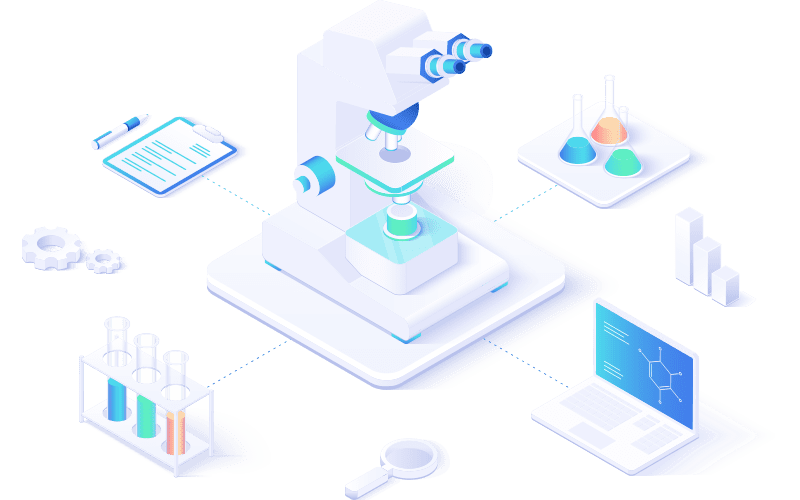
LIMS Suite
Seamless Sample and Workflow Management
The LabLynx LIMS Suite empowers laboratories with the tools needed to manage samples, workflows, compliance, and more in one centralized system. It’s the backbone for labs seeking efficient, reliable, and scalable management solutions.
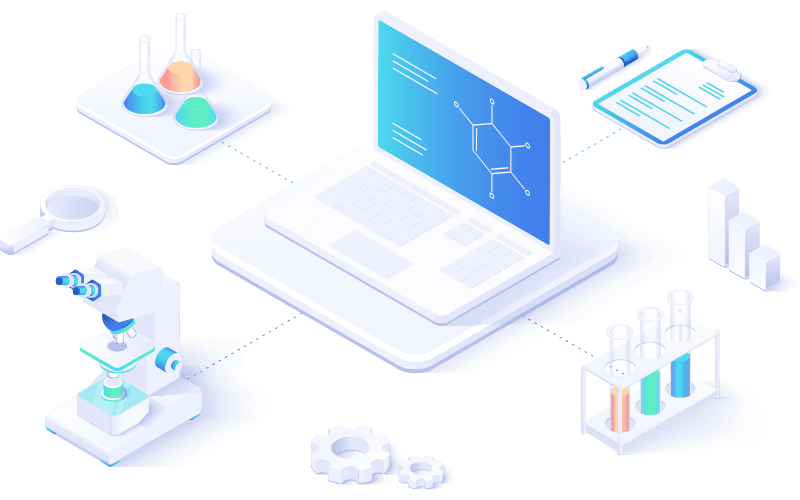
ELN Suite
The LabLynx ELN Suite offers a modern approach to managing lab data and experiments. With its secure, intuitive platform, your team can record, store, and collaborate effortlessly, supporting innovation every step of the way.
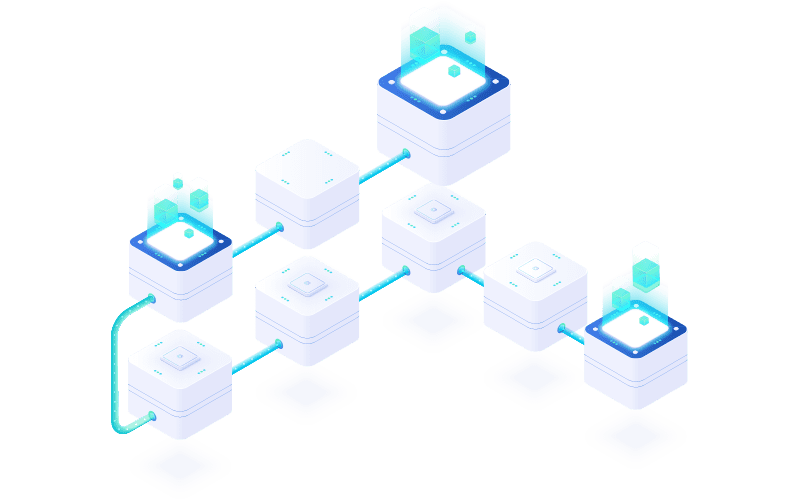
Lab Automation
Automate for Efficiency and Growth
Streamline operations and boost productivity with the LabLynx Lab Automation Suite. Designed for labs ready to embrace advanced automation, this suite integrates systems, instruments, and workflows to deliver efficiency at scale.
